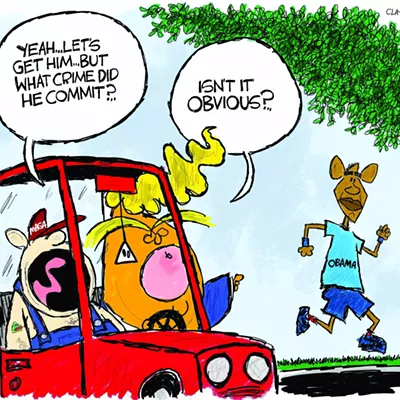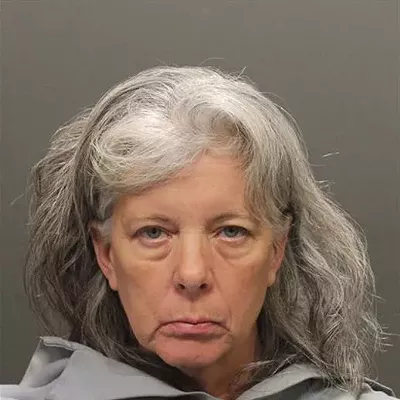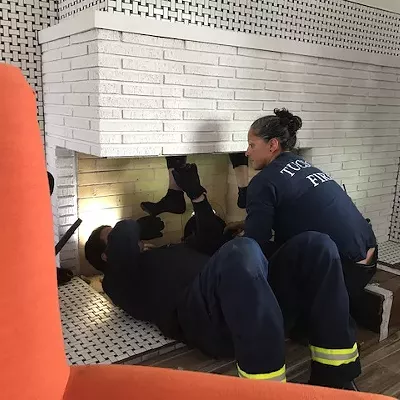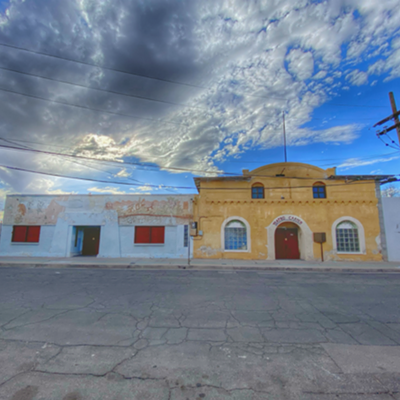Republican Brad Roach and Green Party nominee Claudia Ellquist are seeking to unseat Democratic incumbent Barbara LaWall.
"The crime rate can be lower, and we don't have to accept it (being) as high as it is," declares Roach, a 37-year old criminal lawyer now in private practice.
On his Web page, Roach provides a comparison of FBI violent-crime statistics from 2006. The rate shown for Pima County is 16 percent higher than that for the Phoenix metro region, and 25 percent above the United States average.
"Ten percent of criminals commit 85 percent of the crimes," Roach suggests, "and the police fairly well know who they are. But we're not targeting the right people and taking them off the streets."
The 62-year old LaWall disputes Roach's conclusions. She insists Pima County's violent-crime rate has fallen by more than 21 percent since she was first elected in 1996.
"We have the best County Attorney's Office in the state in holding criminals accountable," LaWall proclaims. As proof, she cites a conviction rate of almost 94 percent, and says that 70 percent of the cases her office takes to trial involve dangerous criminals.
In tough economic times, Ellquist believes the County Attorney's Office needs to pay more attention to where it is spending its limited financial resources. One focus of her campaign, as it was four years ago when she received 8 percent of the vote, is to push for a moratorium on seeking the death penalty.
"They're three times as expensive," Ellquist says of death-penalty cases compared to life-sentence cases. The 59-year old Ellquist, a longtime community activist, thinks this money can be put to better use.
"If the office has more financial resources," Ellquist says, "it has more options. ... Other programs could be expanded."
LaWall talks with pride about several programs initiated while she has been county attorney, including Amber Alert and Safe Baby efforts. But she believes the death penalty must remain an option.
"I don't think there's an economic argument to be made here," the incumbent says, adding that she doesn't agree that death-penalty cases are more expensive. "It's important to seek justice."
How that justice is sought is another area of dispute between the candidates. While LaWall proudly lists her office's high trial rate (compared to the number of cases plea bargained), both Roach and Ellquist criticize it.
"Trying cases is not a lot more expensive," LaWall insists of her office's practice. She indicates that 7 percent of cases now go to trial, one-half the percentage in 1996.
"The trial rate is politically set," counters Roach, who used to work for LaWall before leaving the office in the wake of the Stidham murder trial. He says this trial rate costs Pima County taxpayers almost $3 million more when compared to the average trial rate of other counties.
Stating that he got into the race because of what he perceived to be "one blunder after another" by LaWall, Roach also says: "If the office's attorneys were told they don't have to go to trial to get ahead, they'd have time to look at other cases."
Ellquist agrees the current trial rate is too high, and believes the office should more frequently consider treatment as an alternative to trials in drug cases.
"Instead of going to court, the county attorney should lobby for increased diversion opportunities," she says.
"There are wide differences in the vision of what underlies the candidates in this race," Ellquist adds. "There is a real decision to be made about what people want the county attorney's office to be."
For his part, Roach says: "The county attorney affects our lives so much more than people assume."
LaWall says that she's proud of her "record of success" before concluding: "I promise the people of Pima County effective protection that is fiscally responsible."
The continuing economic downturn is also playing a role in the race for Pima County sheriff. Republican challenger Harry Shaw thinks "get-tough" strategies with inmates are needed. Longtime Democratic incumbent Clarence Dupnik calls those strategies "ridiculous."
"The jail is like a hotel," the 59-year old Shaw observes. "Inmates are allowed to spend $100 per week on groceries, so they use food to trade for sexual favors and protection."
As an alternative, Shaw cites a South Carolina practice of allowing inmates only $8 a day for food and then confiscating what they don't eat. His other "get-tough" ideas, he admits, are inspired by Maricopa County Sheriff Joe Arpaio.
"We are tough with criminals," Dupnik responds. "Arpaio subjects inmates to ridicule and humiliation. That's counterproductive."
The 72-year old Dupnik, sheriff since 1980, lists several recent accomplishments, including consolidating crime-fighting operations with numerous other agencies.
Dupnik says he is seeking re-election in part because of the need to implement new information systems as well as an upgraded communications network approved by the voters in 2004.
Shaw indicates he is running to lower Pima County's crime rate. "I'm working on a six-step program to put more deputies on the street, while most likely reducing the budget," he says.
Insisting the sheriff's office is now top-heavy with administrators, Shaw observes: "Crime is absolutely on the rise here. ... With more deputies and getting tough on inmates, criminals will leave Pima County."
Dupnik says his office is anything but top-heavy with administrators--and provides statistics to prove it. He also points out the crime rate in unincorporated Pima County, the area solely under the sheriff's jurisdiction, is about half of that in the region's cities.
"It's been extremely rewarding and challenging to be at the helm of the department ... but there's still work to be done, and I still feel I have the energy to do it," Dupnik says.
Shaw, on the other hand, points again to the local crime rate in asking for people's support on Nov. 4. "The crime statistics would go down if I'm elected," he insists. "If people like Joe Arpaio, they'll love me."









